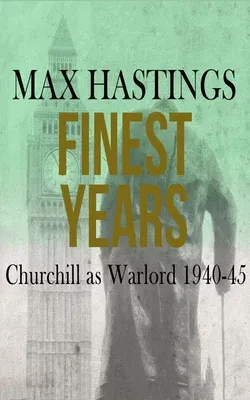Preeminent military historian Max Hastings presents Winston Churchill as
he has never been seen before. Winston Churchill was the greatest war
leader Britain ever had. In 1940, the nation rallied behind him in an
extraordinary fashion. But thereafter, argues Max Hastings, there was a
deep divide between what Churchill wanted from the British people and
their army, and what they were capable of delivering.
Himself a hero, he expected others to show themselves heroes also, and
was often disappointed. It is little understood how low his popularity
fell in 1942, amid an unbroken succession of battlefield defeats. Some
of his closest colleagues joined a clamour for him to abandon his role
directing the war machine.
Hastings paints a wonderfully vivid image of the Prime Minister in
triumph and tragedy. He describes the 'second Dunkirk', in 1940, when
Churchill's impulsiveness threatened to lose Britain almost as many
troops in north-west France as had been saved from the beaches; his
wooing of the Americans, and struggles with the Russians. British
wartime unity was increasingly tarnished by workers' unrest, with many
strikes in mines and key industries.
By looking at Churchill from the outside in, through the eyes of British
soldiers, civilians and newspapers--and also those of Russians and
Americans--Hastings provides new perspectives on the greatest
Englishman. He condemns as folly Churchill's attempt to promote mass
uprisings in occupied Europe, and details 'Unthinkable'--his amazing
1945 plan for an Allied offensive against the Russians to liberate
Poland. Here is an intimate and affectionate portrait of Churchill as
Britain's saviour, but also an unsparing examination of the wartime
nation which he led and the performance of its armed forces.
Max Hastings studied at Charterhouse and Oxford and became a foreign
correspondent, reporting from more than 60 countries and 11 wars for BBC
TV and the London Evening Standard. He has won many awards for his
journalism. Among his bestselling books, Bomber Command won the
Somerset Maugham Prize, and both Overlord and Battle for the
Falklands won the Yorkshire Post Book of the Year Prize. After 10 years
as editor and then editor-in-chief of the Daily Telegraph, he became
editor of the Evening Standard, in 1996. A Fellow of the Royal Society
of Literature, he was knighted in 2002.

